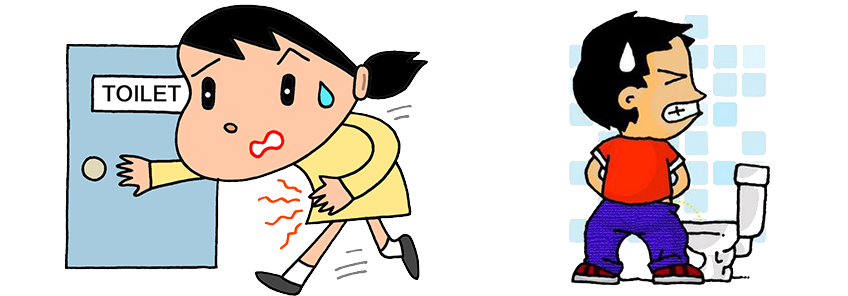Excess Urination

Excess urination can be frequent urination (with normal total urine output) or urinating abnormally large volume of urine (usually more than 3 liter/24 hours in adults) called polyuria. It is a common problem in men and women of all ages but more common in middle age or older individuals. It can be of major inconvenience and sometimes cause social embarrassment. When this occurs at night, it is called nocturia. Nocturia can disturb your sleep and daytime functioning. Severe dehydration rarely occurs due to excessive urination, and when it occurs it requires immediate attention.
Causes of Frequent Urination
- Urinary tract infection, causes frequent urine but usually not an excessive urine volume
- Prostate problems are a major cause of frequent urination in older males.
- Neurogenic bladder resulting from stroke and problems of nerves supplying the bladder
- Overactive bladder syndrome is a common cause of urge to urinate frequently
- Stones or tumors of urinary bladder
- Vaginitis, inflammation of vagina can cause frequent urination in females
- Pregnancy
Causes of Polyuria
- Diabetes mellitus, polyuria can be the first sign of undiagnosed or uncontrolled diabetes mellitus.
- Medicines like diuretics used for swelling, Lithium used as mood stabilizer
- Diabetes insipidus, a disease in which kidneys are not able to regulate water balance due to decreased production or action of antidiuretic hormones (ADH).
- Kidney failure (Acute tubular necrosis): after the phase of decreased urine is resolved
- High level of calcium or low level of potassium in the body
- Psychogenic polydipsia, a mental problem where you have excessive thirst and drink excessive amount of water.
- Alcohol and caffeinated drinks.
When to seek help?
You should consult your doctor if you have excessive urination that cannot be explained by an increase in fluids or medications. In some cases, cutting down on caffeine and alcohol can resolve the problem. But frequent urination can a sign of serious condition. Presence of following symptoms along with excessive or frequent urination should prompt immediate medical attention:
- Fever
- Painful urination
- Abdominal pain
- Nausea/Vomiting
- Blood in the urine
- Foul smell or color of the urine
- Discharge from vagina or penis
- Severe dehydration
- Children becoming irritable
How is it diagnosed?
When you consult a doctor for excessive urination, your doctor will first make sure that the urine output is out of proportion to fluid intake or the intake is abnormally too high. Your doctor will ask you about all the symptoms you have, medicine you are taking and examine you in detail.
You may be asked to undertake following tests.
- Blood sugar (glucose) test
- Blood urea nitrogen, Serum Creatinine and electrolytes
- Osmolality of blood or urine
- Urinalysis to look for infection
- Cystoscopy (endoscopy of urinary bladder)
- Ultrasound of kidney and bladder
- Rarely you may need further tests like
- Water deprivation test (limiting fluids to see if the urine volume decreases)
- Level of ADH (Antidiuretic hormone) in blood
- CT Scan, MRI of brain (to look for cause of diabetes insipidus)
How is it treated?
Treatment of underlying condition is the mainstay of treatment.
Urinary tract infections are treated with antibiotics. Diabetes mellitus is treated by controlling high blood sugar with diet control, anti-diabetic medicine or insulin. Prostate problems are managed by urologist. Overactive bladder may be treated with some medications.



Send us your feedback on this article